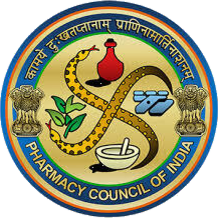This article needs additional citations for verification .(May 2013) |
 | |
| Abbreviation | PCI |
|---|---|
| Formation | March 4, 1948 |
| Type | Government |
| Legal status | Active |
| Purpose | Regulation of the profession and practise of pharmacy |
| Headquarters | New Delhi, India |
President | Montubhai Patel |
| Pramod G. Yeole | |
| Website | pci |
The Pharmacy Council of India (PCI) is the statutory body under the Ministry of Health and Family Welfare, Government of India. It is constituted under the Pharmacy Act of 1948. [1] [2] The Council was first constituted on 4 March 1948. [3] Montubhai Patel was elected as the new president of PCI in May 2022. [4] [5]